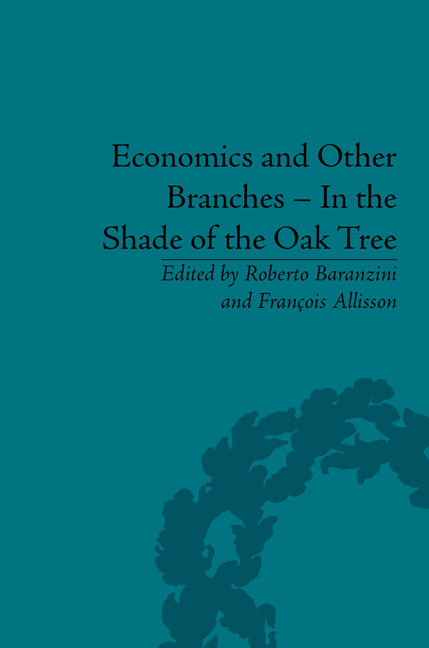Book contents
- Frontmatter
- CONTENTS
- List of Contributors
- List of Figures and Tables
- Introduction
- Pascal Bridel's Bibliography (up to 2013)
- Part I Léon Walras's Economic Thought
- 1 Walras between Holism and Individualism
- 2 The Case against Market Perfection: The Two Bertrands' Objections are One
- 3 Walras, Marx and the Philosophy of History
- 4 Sraff a without Walras
- Part II The Spreading of Thought
- Léon Walras's Reception
- The Lausanne School
- French Matters
- Cambridge UK
- Part III Monetary Theory
- Part IV Methodology
- Part V Economics and Humanities
- Economics and Social Sciences
- Some Insights from Visual Arts
- Part VI Economics and Civil Society
- Notes
- Index
3 - Walras, Marx and the Philosophy of History
from Part I - Léon Walras's Economic Thought
- Frontmatter
- CONTENTS
- List of Contributors
- List of Figures and Tables
- Introduction
- Pascal Bridel's Bibliography (up to 2013)
- Part I Léon Walras's Economic Thought
- 1 Walras between Holism and Individualism
- 2 The Case against Market Perfection: The Two Bertrands' Objections are One
- 3 Walras, Marx and the Philosophy of History
- 4 Sraff a without Walras
- Part II The Spreading of Thought
- Léon Walras's Reception
- The Lausanne School
- French Matters
- Cambridge UK
- Part III Monetary Theory
- Part IV Methodology
- Part V Economics and Humanities
- Economics and Social Sciences
- Some Insights from Visual Arts
- Part VI Economics and Civil Society
- Notes
- Index
Summary
If a comparison between Marx and Walras may bring to light certain proximities or oppositions, it is clear that the communism of the first bore an importance unlike the liberal socialism of the other and that, in this field of history, they don't belong to the same category. With his academic philosophical culture, a knowledge of history limited to a few great works of vulgarized histories, Walras did not fight on equal terms with Marx. Moreover, while history was central to the first, the essential was evidently elsewhere to the other. However, the pregnancy of the Zeitgeist on these two intellectual heirs of the Enlightenment and Revolution is considerable and makes connections possible.
History is at the centre of the Marxian system. Socialism is made scientific by the laws of history: the historic evolution that results from forces that are developed within all modes of production undergoes a general law, the only universal law. It conveys a univocal succession of modes of production within which categories and theories are put into perspective. Communism is the final stage.
The status of Walrasian history is more difficult to grasp. It is not, to say the least, an important field of study and Walras remains, in his domain, an enlightened amateur. But his role in the Walrasian system is crucial, for his pure political and social economy, this ideal in the matter of interest and justice (an abstraction drawn from reality that is already always there as an Idea), will necessarily become reality.
- Type
- Chapter
- Information
- Economics and Other Branches – In the Shade of the Oak TreeEssays in Honour of Pascal Bridel, pp. 39 - 52Publisher: Pickering & ChattoFirst published in: 2014

